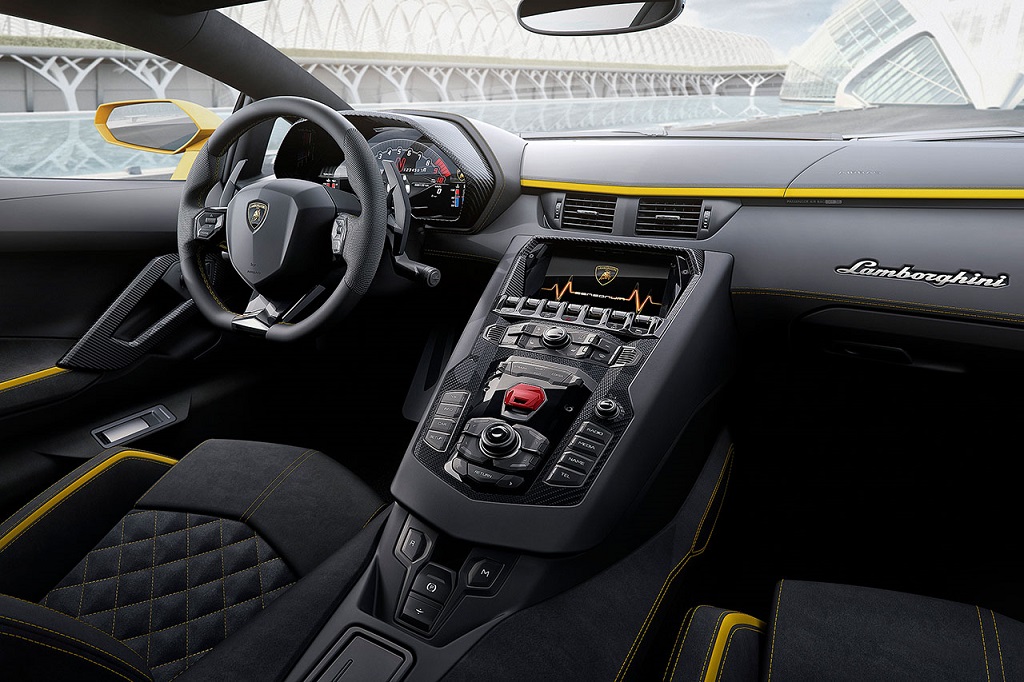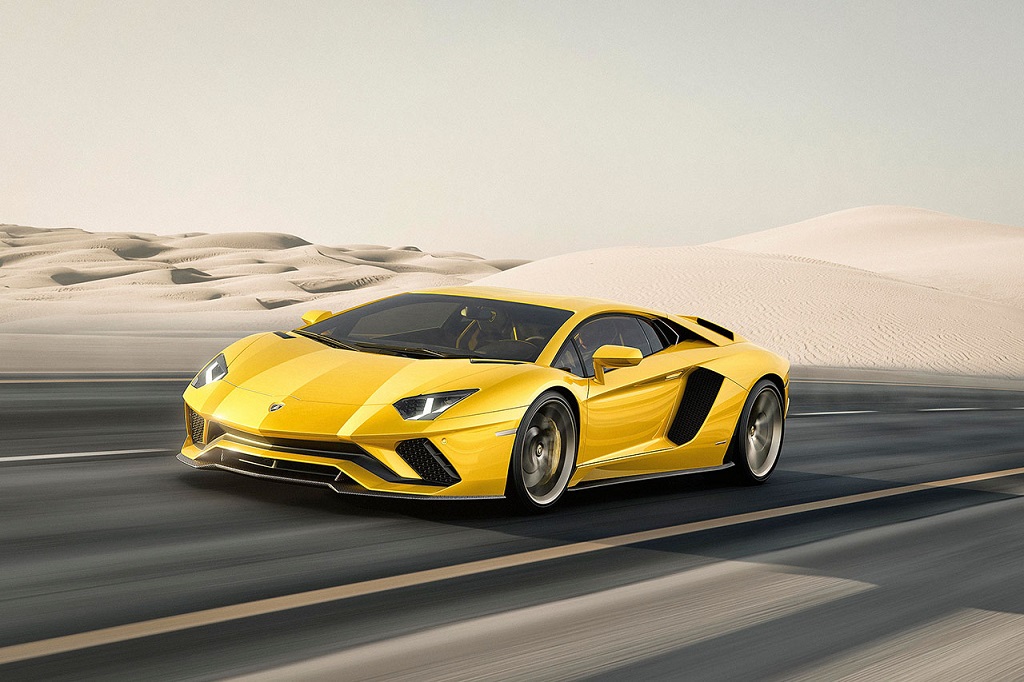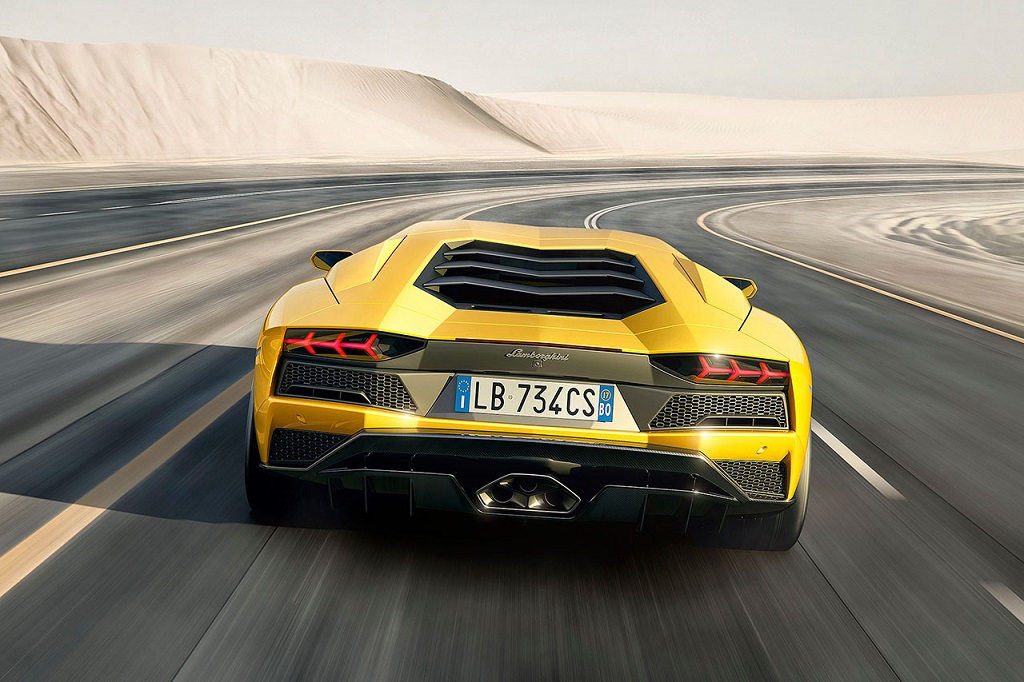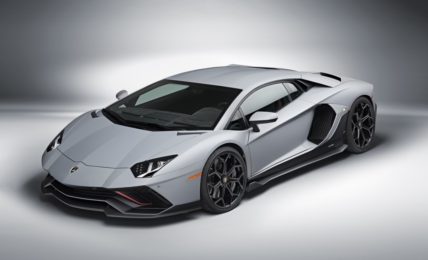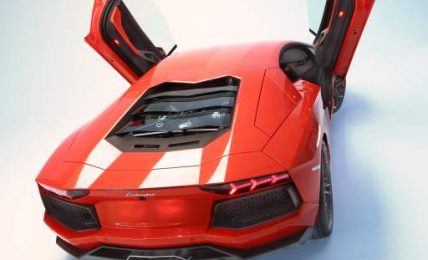Lamborghini has updated the Aventador with improved performance and the car is likely to be launched in India too.
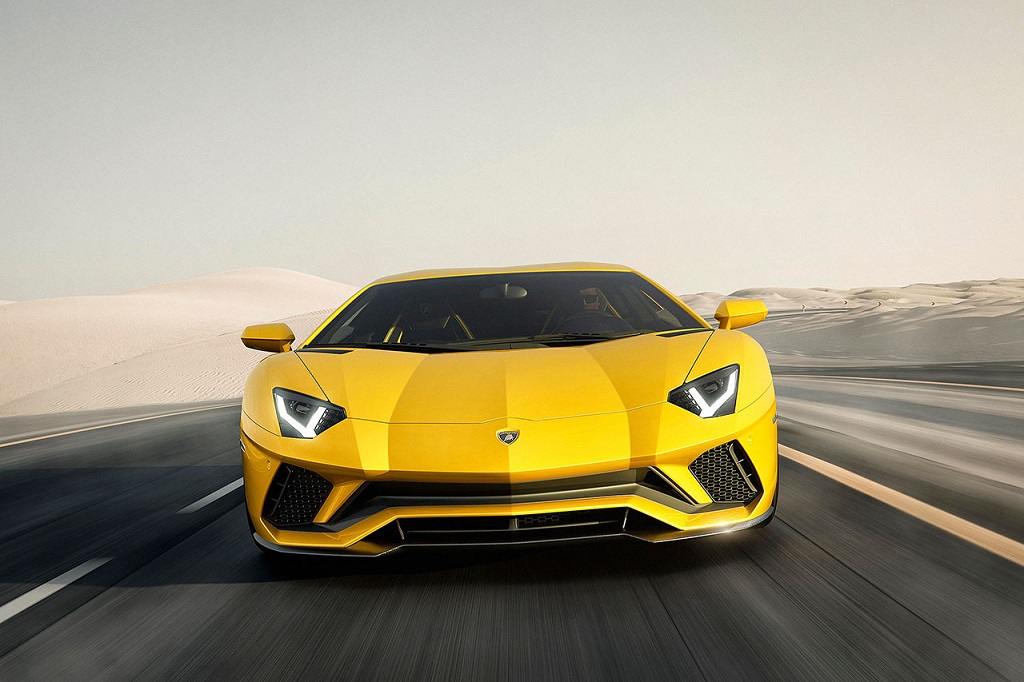
Lamborghini has taken the covers off the 2017 Aventador, giving it more power, better aero performance and an overhauled mechanical package. The facelifted Aventador also makes do without the ‘LP’ designation after its name, getting an ‘S’ suffix instead (something previously seen on the Miura and the Countach).
Poking a bit into the details about the changes, on the exterior you have a revised front fascia that helps improve downforce, a new rear wing that adjusts in three different positions and a restyled diffuser. Inside, everything’s more-or-less the same, apart from a new digital instrument cluster and an updated infotainment system with Apple CarPlay compatibility.
The Aventador S carries over the 6.5-litre naturally aspirated V12 engine of its predecessor but the power has been increased from 700 HP to 740 HP, although the torque remains the same at 690 Nm. To achieve this power bump, the engine’s variable valve timing and intake system have been tweaked and the redline raised from 8350 RPM to 8500 RPM. Since the weight of the supercar remains unchanged at 1575 kgs, the power-to-weight ratio has been improved to 470 HP/Tonne. All this enables for a run to 100 km/hr in just 2.9 seconds and a top-speed of 350 km/hr.
Notably, the Aventador S doesn’t get a dual-clutch gearbox like the Huracan, rather, continuing with the 7-speed single-clutch tranny (we assume the added weight of the DCT could be the issue). However, the car benefits from the Aventador SV’s magneto-rheological dampers and the special-edition Centenario’s four-wheel steering. Carbon-ceramic brakes are standard and tyres come courtesy of Pirelli.
The first deliveries of the Aventador S will commence from Spring 2017 and we expect the supercar to arrive on the Indian shores sometime next year to weigh up against the Ferrari F12.
Lamborghini Aventador S
– New front and rear fascias and updated infotainment system
– Power from 6.5-litre naturally aspirated engine increased to 740 HP
– 0-100 km/hr takes 2.9 seconds; top speed is 350 km/hr
– Global deliveries commence next year
